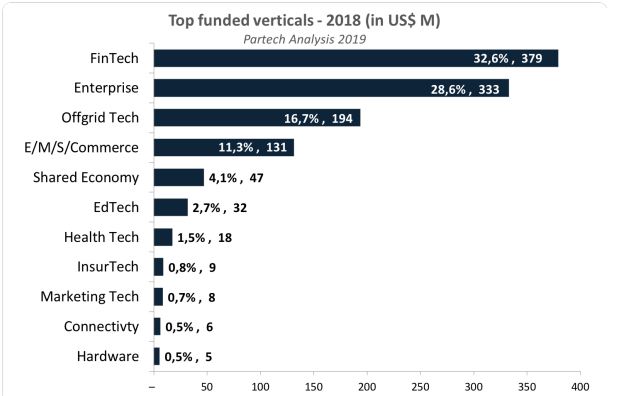What Would Have Become of the African Edtech Sector without the Covid-19?

A good education is frequently the key to a better life in Africa. Upward mobility can occur in many different ways with the correct education. With the appropriate educational foundation, Africans have entered significant global dialogues in their occupations and businesses all around the world. The traditional methods of delivering education have been shown to be unproductive, and COVID-19 is acting as a catalyst for the rise in digital transformation across industries. On this note, African Edtech is expanding and thriving via accessibility and necessity.
In order to close the access, quality, and affordability divide on the continent, a vibrant Edtech space may be essential. Africa has a sizable and youthful population. In fact, it is predicted that in the next 25 years, the population of Africa would quadruple, reaching 2.5 billion people. Additionally, it is the only area in the world where the working-age population is anticipated to keep growing after 2035.
India’s population is currently 1.4 billion, and by 2050 it will increase to 1.6 billion. The African workforce is expected to increase by 15 to 20 million people annually for the next 20 years, according to the World Economic Forum. Additionally, the population of Africa is incredibly youthful and will continue to get younger.
Currently, African governments spend, on average, 5% of GDP on education, which is the second highest of any region (Brookings), and on average, 16% of their national budgets. Moreover, households in low- and middle-income countries spent 43% on total education spending in 2018–19 (World Bank). However, these spending were not enough to cater for the 244 million children aged 6 to 18, not in school. Until the Covid-19 pandemic, everything seemed to be choking Edtech—which seemed the only solution.
Pre-Covid-19 African Edtech Sector
Africa has a problem with education; it had one before the pandemic, the Covid probably exposed all the several loopholes surrounding education. The World Bank estimates that 87% of children in sub-Saharan Africa receive inadequate instruction and lack the practical skills necessary to compete in today’s dynamic labor market. Despite having the most industrialized economy on the continent, South Africa, only 40% of students graduate from high school, according to UNESCO.
Even though the African Development Bank (AfDB) states that African countries spend roughly 5% of GDP on education, which is the second-highest percentage of any area, access to high-quality education is nevertheless hampered by massive infrastructural and staff shortages.
Based on Partech‘s annual funding reports which began in 2015, between 2017 and 2020, fintech accounted for 30% of the yearly total equity funding to tech startups in Africa on average. Off-grid tech is another area that receives fairly consistent interest — it trailed behind fintech, but still averaged 15% of total funding in the same time period.

Investments in Edtech lagged in the years that preceded the pandemic. Although the sector was perceived as a messiah to Africa’s failing educational sector, Edtech still failed at bridging this gap with lack of funding playing a major role. For instance, $31.8M was the total amount raised by African Edtechs in 2018. This represented -51% YoY drop and 2.7% of total funding. In 2019, Edtech accounted for 6.1% of total funding with $124M total investment, representing +290% YoY growth. According to market research, the global Edtech market received $7.0 billion global education venture capital funding in 2019.
Post-Covid-19 African Edtech Sector
The pandemic provided Edtech, a subject that is sometimes overlooked, with its one and only opportunity for a major audition in Africa. It served as the test that finally brought attention to African Edtech, which had lain dormant for far too long.
While funding for Edtech increased globally in 2020, it lagged behind the surge in remote learning demand driven on by the epidemic in Africa. Around $16.1 billion, up from $7 billion in 2019, was invested globally in venture capital for the education sector in 2020. Investments in African education technology fell from $124 million in 2019 to $39 million in 2020.
Edtech showed quick growth in 2021 after being virtually nonexistent in 2020. 29 Edtech startups, or 5.1% of the total, received funding in 2021, an increase of 70.6% from 17 (4.3% of the total) in 2020. While Edtech’s percentage of funded initiatives has remained largely consistent year over year, there has been a noticeable increase in the number of companies raising money, which was up 6.3% on 16 in 2019.
When we consider the total amount of funding received by Edtech startups, this rise becomes even more apparent. The combined $81,030,000 raised by the 29 businesses represents 3.8% of the total African funding and raises Edtech investment to a level comparable to that of logistics or Agritech.
The fact that African-based fintech startups continue to earn the most funding is nothing new. The industry raised 28.8% ($845 million), or the highest share, of the $3.1 billion in funding acquired in the first half of 2022. Over 200 Edtech businesses are dispersed across Africa, and the industry has done reasonably well, raising 6.6% of capital.
Still Taking on the Challenges
In reality, the use of Edtech in Africa has barely begun. Edtech receives significantly less attention and, as a result, draws far less venture funding than other hotspots like fintech, mobility, and e-commerce, in part because there are concerns about its viability.
The lackluster interest in African Edtech can be related to the fact that the majority of the firms operating in this space usually create technology-dependent remote learning systems that often call for hardware, internet, and electricity.
These three components make up a trinity of problems that persist in Africa. It is believed that the numerous obstacles that have up till now prevented Africa from embracing Edtech make it undesirable to funders. However, e-learning appeared to gain ground when schools were forced to close once the pandemic struck, thereby halting formal education for over 250 million primary and secondary school students in Africa (not to mention those enrolled in university institutions).
